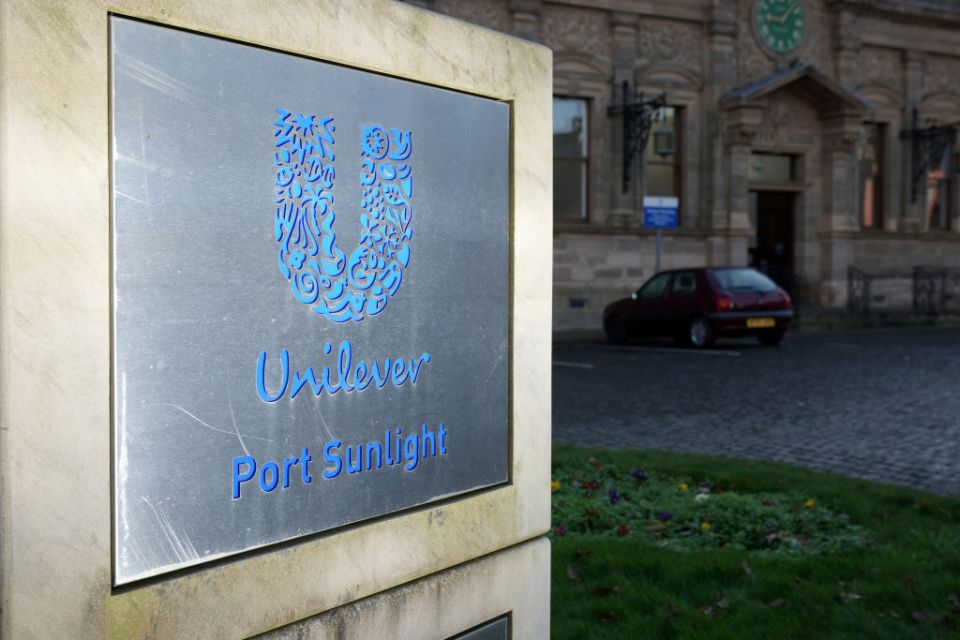With a new CEO stepping in, Unilever must now do the right thing and exit Russia

Still operating in Russia currently means financing Putin’s war in Ukraine. It’s time for Unilever to face reality, end its hypocrisy and exit the country for good, writes Margaret Hodge
When President Putin’s security forces raided the offices of the Russian oligarch and warlord Yevgeny Prigozhin last month, they found millions of banknotes stuffed into a van and two buses.
Prigozhin accumulated his vast wealth in a number of ways, including direct payments from the Russian government, for waging war in Ukraine with his mercenary army. For several years now, Prigozhin and his gang of hired killers have been awarded lucrative defence contracts so they can carry out Putin’s bidding in Ukraine and across the world.
The origins of those payments tell a story that shockingly implicates some British companies.
Whatever he may boast, Putin’s war in Ukraine is not financed by goodwill and nationalist passion. He is only able to pursue the assault on Ukraine because he has the money required to pay, train and equip the troops and mercenaries he sends to fight on his behalf. So international companies operating in Russia – companies buying oil or goods from the Russian government or oligarch-controlled companies, or companies paying tax into Putin’s coffers – all help to make the continued barbarity possible. After all, an astonishing one in three rubles paid in tax to the Russian government is then spent on the military and security services.
One such company is Unilever, one of Britain’s largest firms. Go into any British supermarket and dozens of Unilever owned brands – from Marmite to Hellmann’s – can be found on the shelf.
Yesterday, Hein Schumacher started his first week as Unilever’s new CEO. His number one priority should be reassessing Unilever’s business operations in Russia. The company has factories in Moscow, Yekaterinburg and Omsk, where it makes a whole host of products – including mayonnaise, Magnum ice creams and Cornettos for the Russian market. Last year it is estimated the business generated just shy of £1bn revenue in Russia, meaning it paid an estimated £260m in tax to Putin.
For Unilever, this moral offensiveness is deepened by its hypocrisy. The company claims admirable aspirations: in its human rights strategy it clearly states, “Respect for human rights – within business and society – must be at the heart of efforts to rebuild a better world”. After the full-scale invasion of Ukraine last year, the then-CEO condemned the war “as a brutal and senseless act by the Russian state.” Unilever even publicly declared it would keep its operations in Russia under ‘close review’. But all of this was hot air: Unilever factories continue to churn out goods across Russia.
The new Unilever boss must tell us how they can demonstrate respect for human rights while continuing to do business in Russia and to pay millions in tax to the Kremlin?
Other large companies use the same excuses as Unilever. They make the rather dubious claim that their products in Russia are essential, and therefore legal and morally legitimate. This is nonsense. Unilever makes Magnum ice creams; their competitor, Mondelez, produces Oreo cookies; fashion brands like Lacoste and Hugo Boss sell expensive luxury clothes. These are not essential goods, and there is no good reason why they should continue making and selling these products in Russia.
When challenged on their wrongdoing, companies come up with mealy-mouthed excuses about the operational challenges of closing down a business in Russia. But they have now had more than 16 months to find a solution that would ensure they pull out of the country. They have run out of excuses.
As the new leader of a British business worth almost £100bn, Hein Schumacher will no doubt start his new job at Unilever with a heaving inbox, filled with competing priorities. But cleaning up Unilever’s act and ceasing all operations in Russia should be firmly at the top of his agenda.
Cutting ties with Russia is essential to turning off the money taps for Putin’s war machine, disentangling British business from oligarchs and their dirty money, and it’s simply another way we can support our Ukrainian allies.
